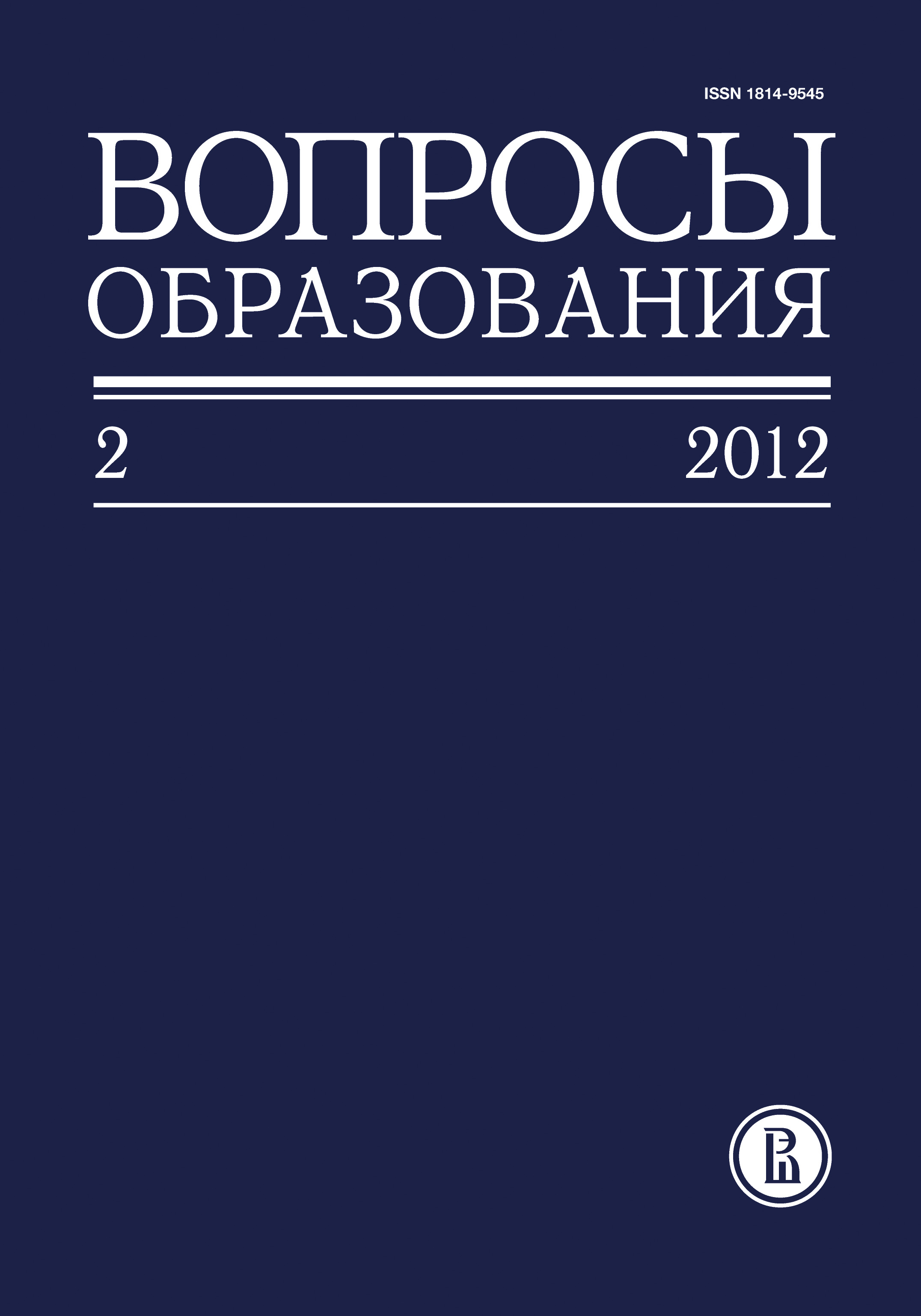Что заставляет меняться российские вузы: договор о невовлеченности
Аннотация
Фрумин Исак Давидович — доктор педагогических наук, научный руководитель Института развития образования НИУ ВШЭ, заместитель главного редактора журнала «Вопросы образования». Эл. адрес: ifroumin@hse.ru
Добрякова Мария Сергеевна — кандидат социологических наук, заведующая проектно-учебной лабораторией «Развитие университетов» НИУ ВШЭ. Эл. адрес: mdobryakova@hse.ru
Рассматриваются изменения в высшем инженерном образовании, произошедшие в России за последнее десятилетие. С целью определения движущих сил внутренних преобразований в университетах, осуществляемых в условиях значительных перемен во внешней среде, обследованы четыре целевые группы: университетские администраторы, студенты, выпускники и работодатели.
Анализ эмпирических данных показал, что в целом стейкхолдеры положительно оценивают качество образования в отечественных вузах. Исключение составляют только работодатели, которые недовольны уровнем приходящих к ним выпускников в связи с недостатком у кандидатов специальных знаний и практических навыков. Данными социологических опросов последних полутора десятилетий подтверждена стойкость неудовлетворенности работодателей качеством подготовки специалистов в системе высшего профессионального образования. Анализ самооценки студентов выпускных курсов позволил выявить существенную нехватку у них на этапе окончания вуза компетенций, необходимых для успешной работы в современной экономике. Предполагается, что в образовательном опыте студентов недостаточно тех видов учебной деятельности, в которых такие компетенции формируются.
Опираясь на концепцию вовлеченности и теорию заинтересованных участников, авторы утверждают, что в российских университетах, как правило, действует «договор о невовлеченности», сутью которого является принятие сторонами существующей ситуации как оптимальной и отказ от изменений. Выявляются факторы, провоцирующие низкую вовлеченность участников в образовательный процесс, рассматривается историческая обусловленность ситуации застоя, в которой все внутренние игроки заинтересованы в ее сохранении. Обсуждаются перспективы дальнейших исследований в области институционального развития российских университетов.








